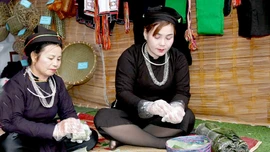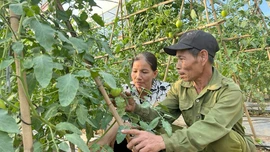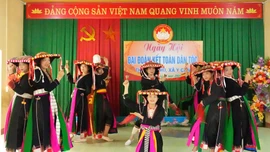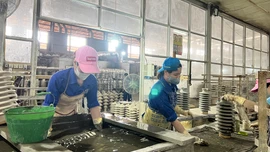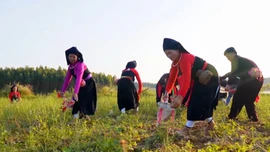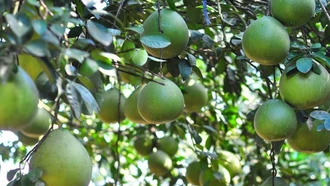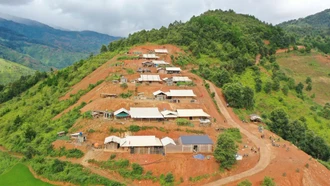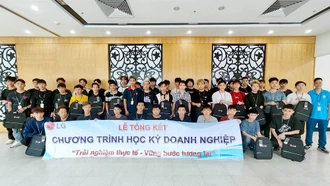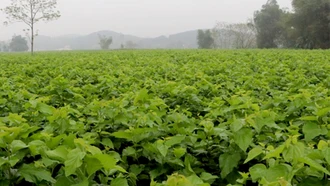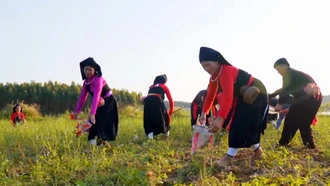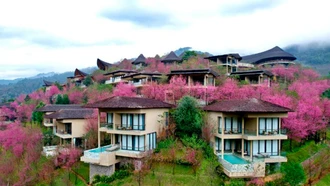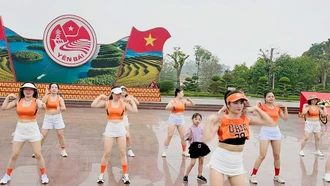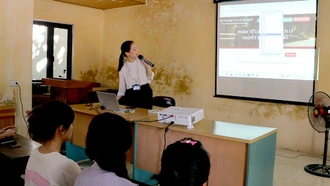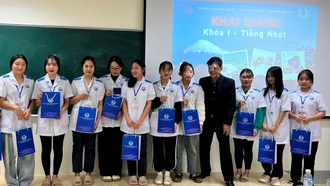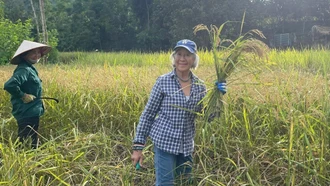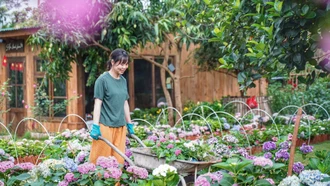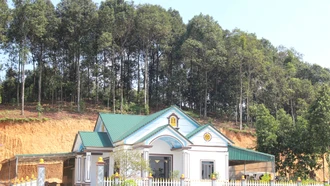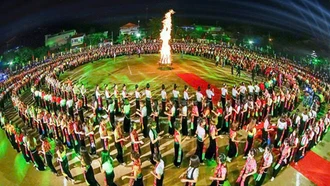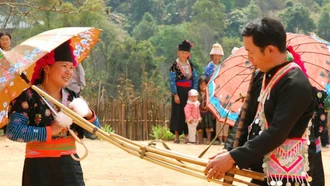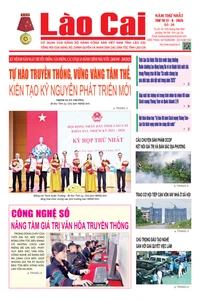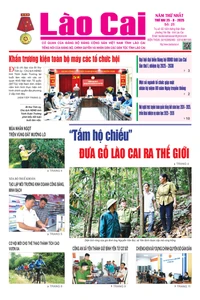The citrus orchard of Mr. Dang Van Hung's family in Ke Sung Village, Tan Thinh Commune, is ripe and ready for harvest, with traders purchasing at 37,000VND per kilogram. Mr. Hung's family chose to pick and sell the early-ripening fruits first. They currently cultivate 2 hectares, 90% of which is dedicated to growing the sweet and fragrant Duong Canh oranges. In 2023, the family harvested 26 tons of oranges, selling at an average price of 28,000VND per kilogram, earning a profit of 500 million VND after expenses.
However, this year, favorable weather conditions are expected to increase Mr. Hung’s yield to 28 tons. Mr. Hung expressed his excitement, saying, "Never before have the prices for Duong Canh oranges been so high. At certain points, the price reached 42,000VND per kilogram, and currently, it is fluctuating between 35,000 and 37,000VND per kilogram, which is 5,000VND higher than in previous years.â€
Alongside the farmers in Tan Thinh Commune, Ms. Truong Thi Lua’s family in Nghia Hung Village, Nghia Tam Commune, is also busy inspecting their orchard to prepare for the harvest of their first batch of Duong Canh oranges to sell to traders for people to use in their early-month rituals.
With 6 hectares of Duong Canh oranges and 4 hectares of lemons, 3 hectares of which were planted in 2017 and are now entering a high-yielding phase, the family has benefited from years of experience. The quality of their oranges is not only attractive in appearance but also sweet and juicy. "The weather this year has been very favorable, with sunlight at the right time for the orange trees to bear fruit, resulting in minimal fruit drop. We expect our yield to reach about 45 tons this year, an increase of 5 tons compared to last year. Prices have also risen by 5,000 to 7,000VND per kilogram. My family and other orange farmers are very excited,†Ms. Lua shared.
To date, Van Chan District has over 2,800 hectares of fruit trees, with more than 1,500 hectares dedicated to citrus fruit, mainly oranges (1,200 hectares). These orchards are primarily located in the outlying communes such as Binh Thuan, Tan Thinh, Nghia Tam, and Chan Thinh.
.jpg)
By the end of 2024, the total fruit production in Van Chan District is expected to reach 15,000 tons, an increase of 1,500 tons compared to the previous year.
To enhance the value of Van Chan oranges, the local government has implemented various measures to support farmers in expanding production scale and applying scientific and technological advancements to create commercial orange farming areas. These include Duong Canh oranges, Sanh oranges, and Chan oranges, with the aim of establishing the "Van Chan Orange" brand and developing certified safe orchards according to VietGAP standards.
According to the district’s Department of Agriculture and Rural Development, by the end of 2024, the total output of all types of fruit in Van Chan is expected to reach 15,000 tons, an increase of 1,500 tons compared to the previous year, with citrus fruit production accounting for over 12,000 tons. With stable and increased prices—ranging from 2,000 to 3,000VND per kilogram for Chan oranges and Sen oranges, and 5,000 to 7,000VND per kilogram for Duong Canh oranges (current prices are between 32,000 to 35,000VND per kilogram)—farmers in Van Chan will generate over 20 billionVND in revenue.
The increased production and stable, rising prices, along with the local government's commitment to building the Van Chan Orange brand, will serve as a strong motivation for residents to continue expanding the citrus orchards and improving the quality of the region's fruit crops. This further confirms that focusing on the development and revitalization of citrus farming is a sound policy, one that not only brings high income but also enriches the local community.
Van Tuan







